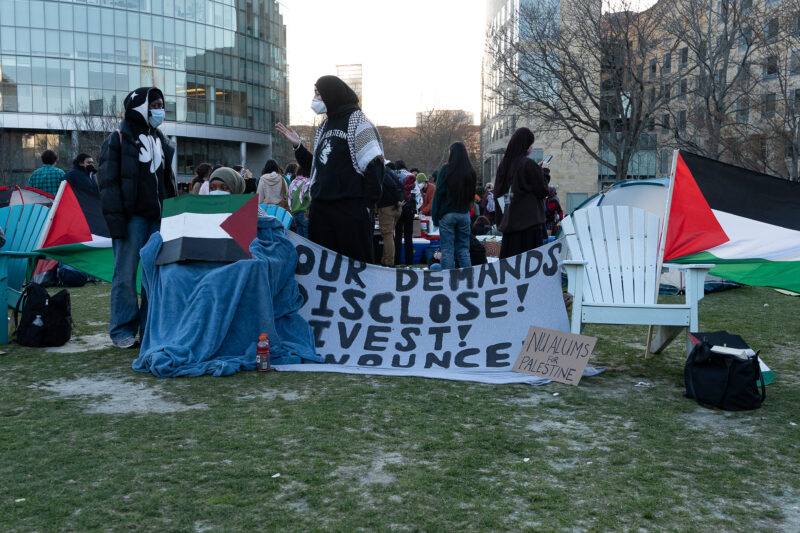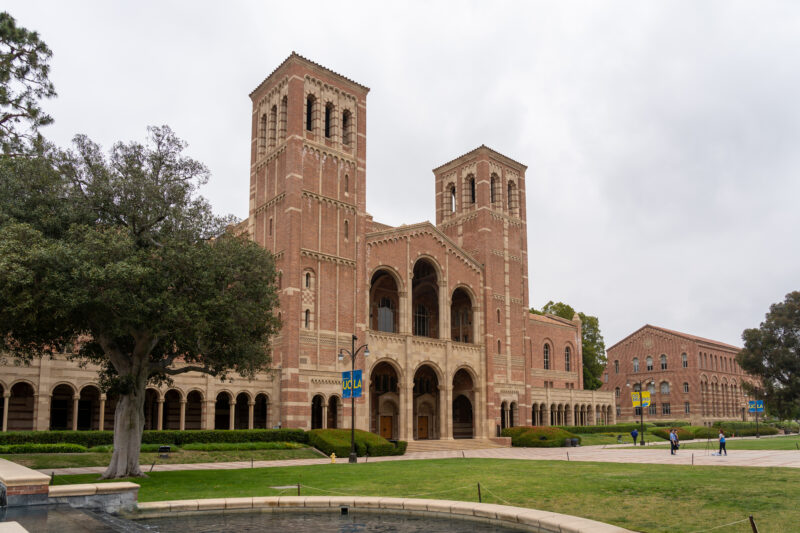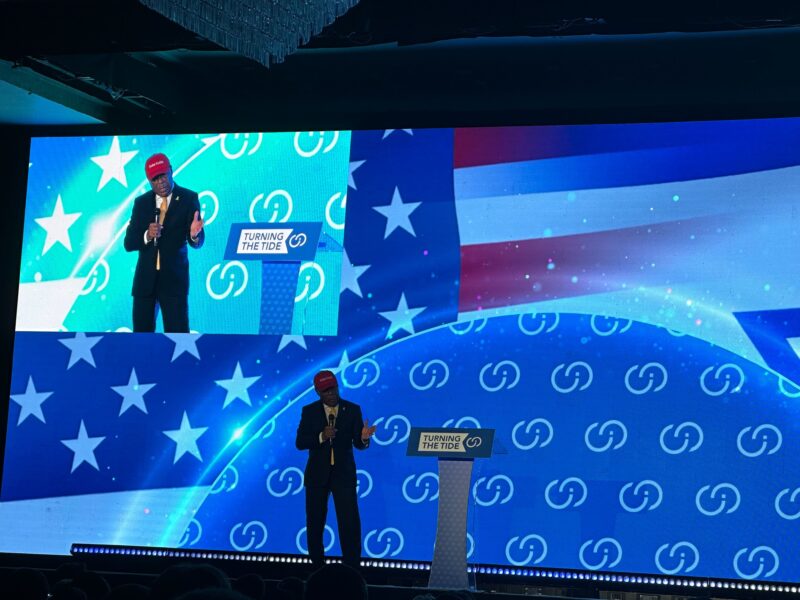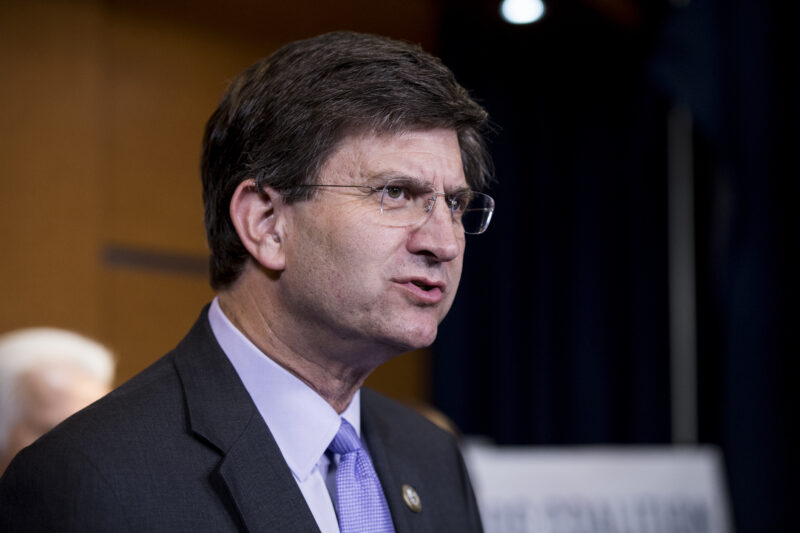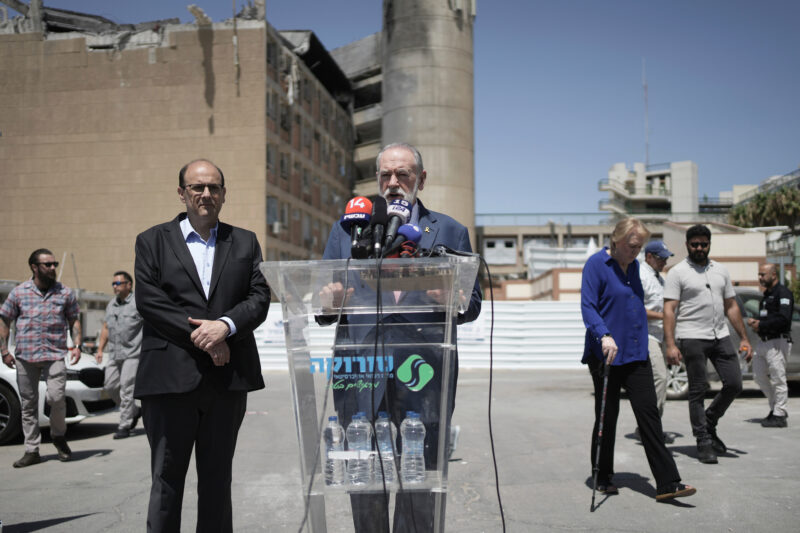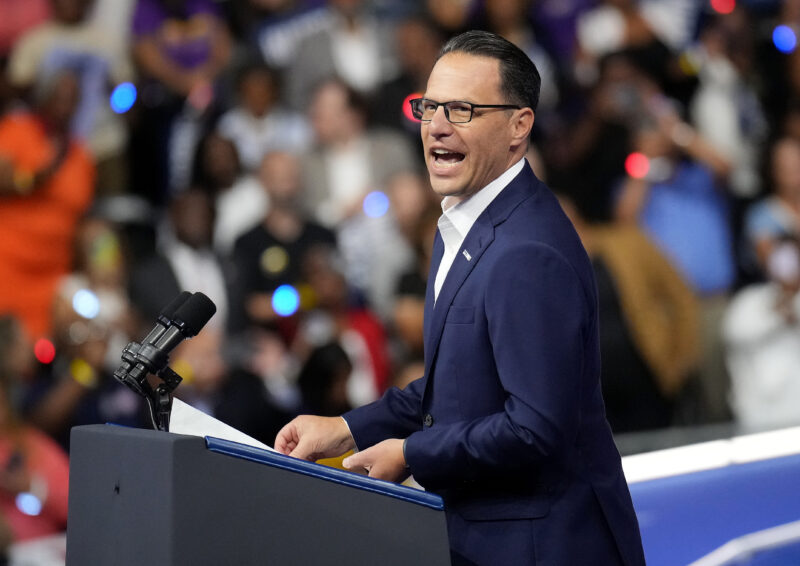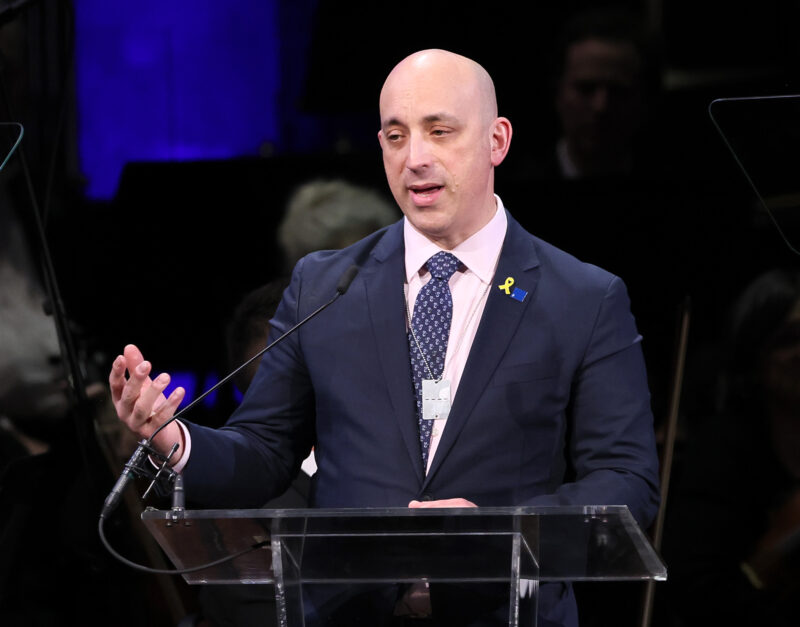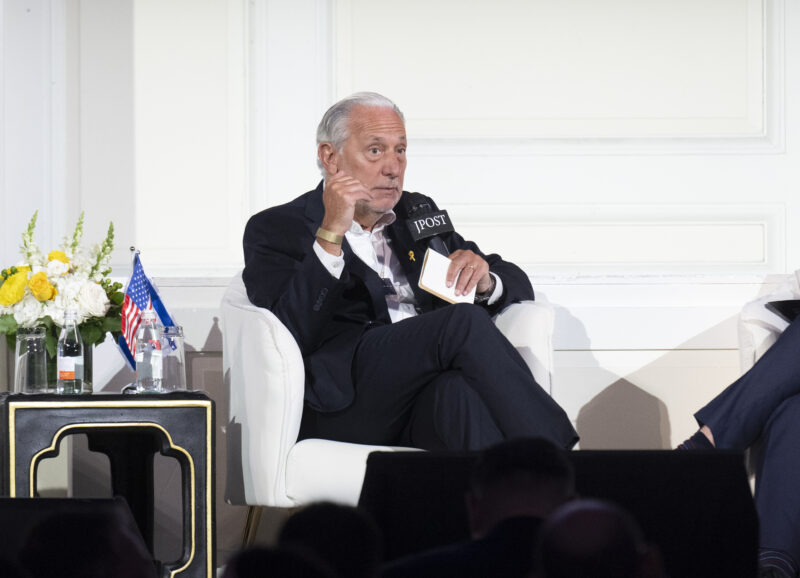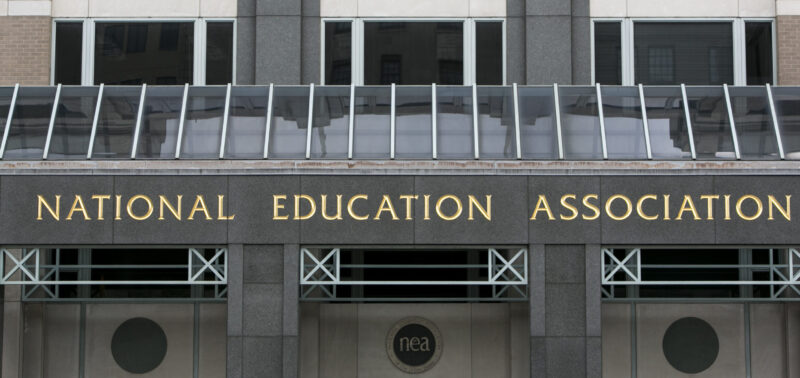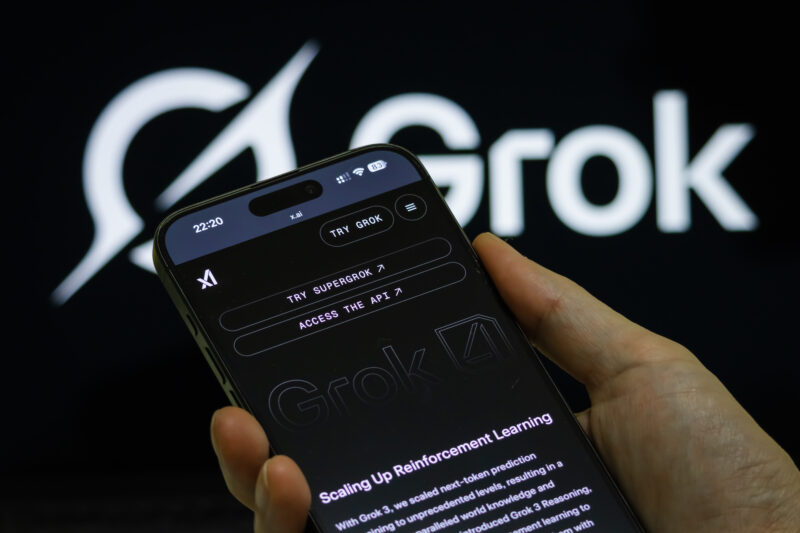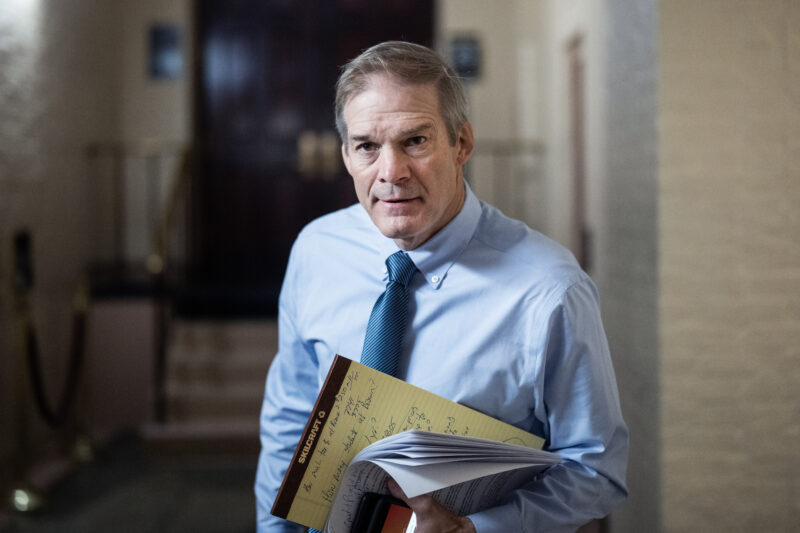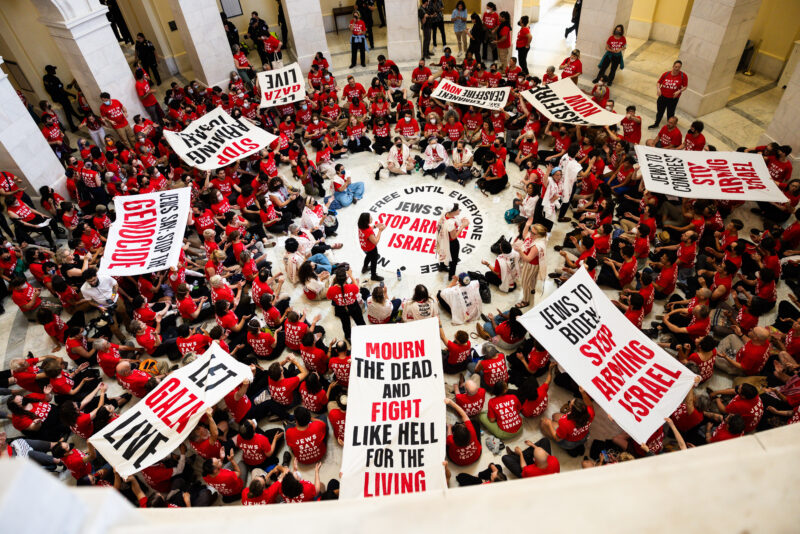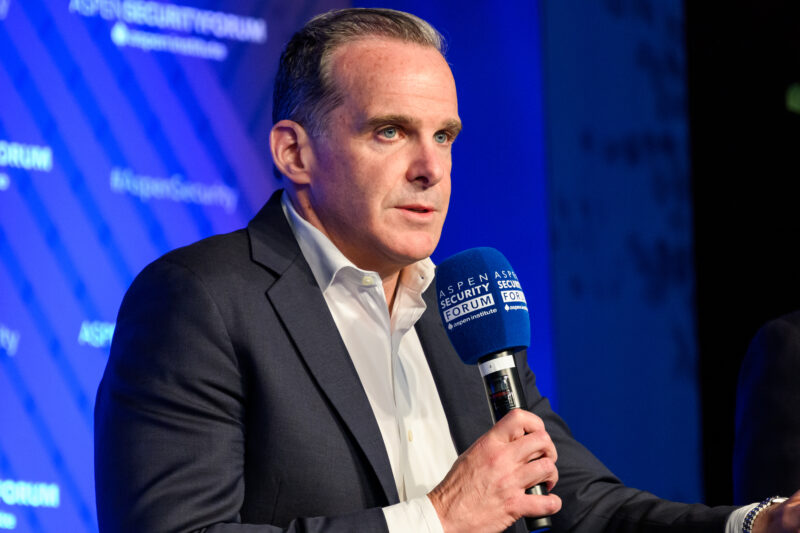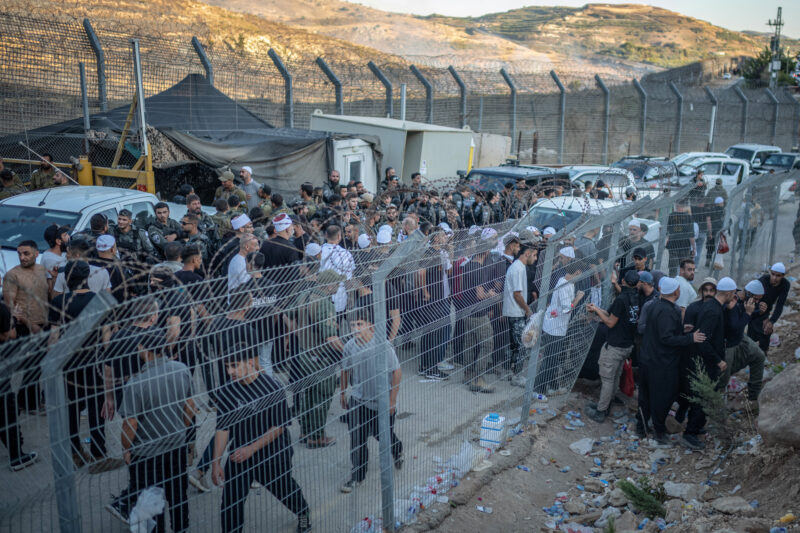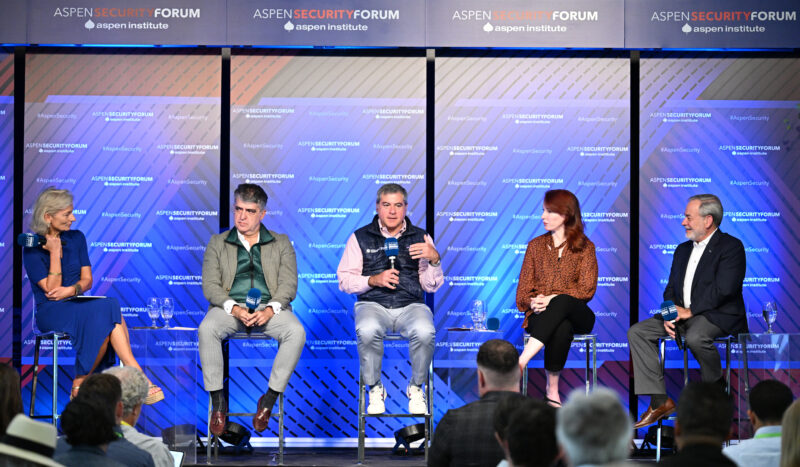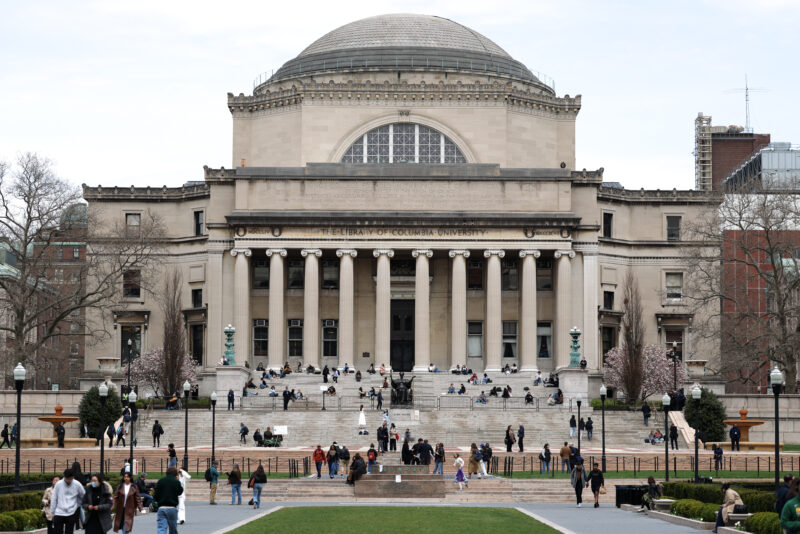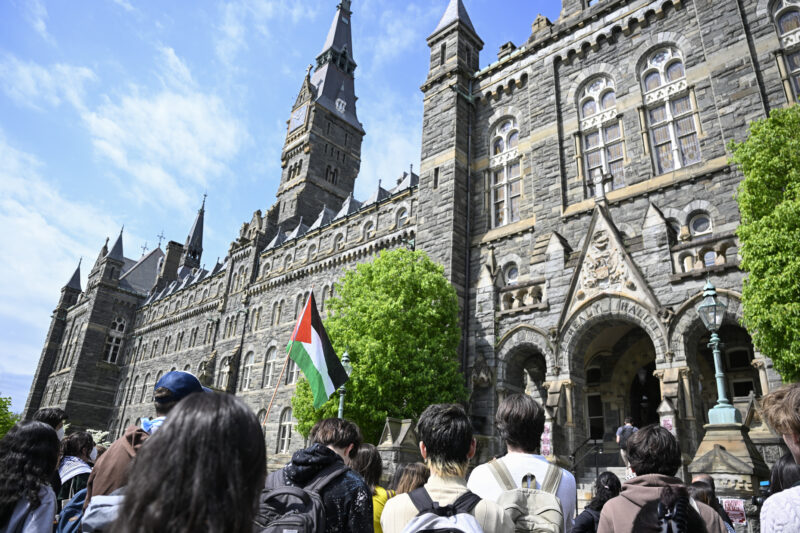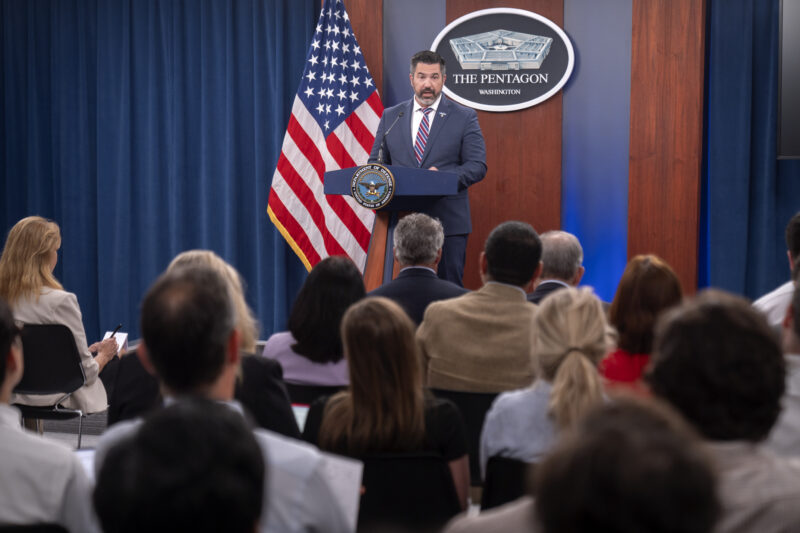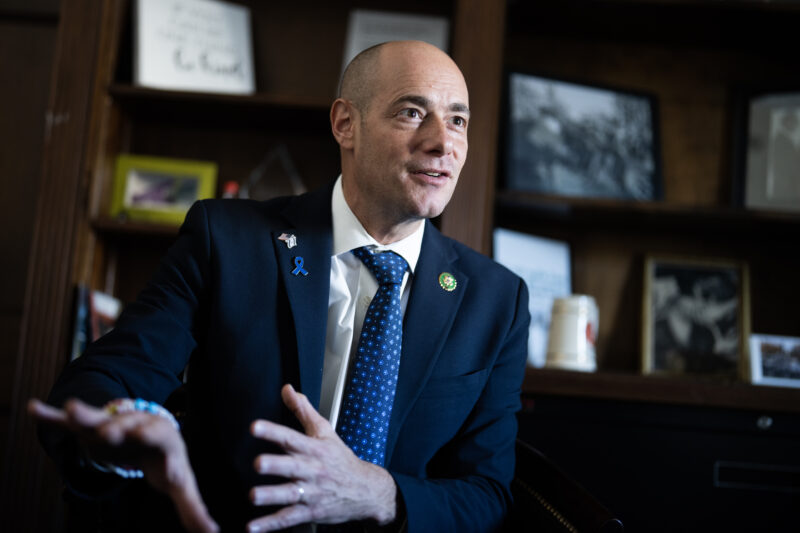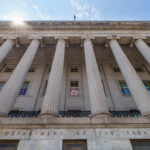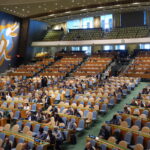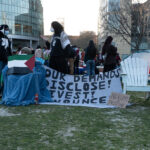
Chip Somodevilla/Getty Images
U.S. Census Bureau Director Robert Groves holds a news conference at the National Press Club August 25, 2011, in Washington, D.C.
School may be out of session for the summer, but officials from Georgetown University, the University of California, Berkeley and the City University of New York will be in the hot seat this week when they testify on Tuesday before the House Education and Workforce Committee.
This is not the first time that university officials have appeared in front of Congress to account for the situations on their campuses, but this week’s hearing aims to focus on more than just the anti-Israel activism that has permeated many campuses since the Oct. 7, 2023, Hamas terror attacks on Israel and the ensuing war in Gaza to focus on root issues, including foreign funding in higher education as well as faculty anti-Israel organizing efforts.
With that as the backdrop, Georgetown’s interim president, Robert Groves, is likely to face hard-hitting questioning about the school’s donations from authoritarian regimes.
Nearly a decade ago, Georgetown took a $10 million donation from an organization connected to Beijing’s ruling Chinese Communist Party — more specifically, according to The Washington Post, to “the specific CCP organizations that manage overseas influence operations” — to establish the Initiative for U.S.-China Dialogue on Global Issues.
But that $10 million is a drop in the bucket compared to the amount of money Qatar is alleged to have sent to Georgetown. According to a study by the research institute ISGAP — which primarily focuses on progressive and Islamist antisemitism — Qatar has donated more than $1 billion dollars to the Jesuit school in recent decades. In addition, Qatar has long had a partnership with Georgetown that includes an outpost of the school in Doha. Earlier this year, the school extended its contract with Doha for another decade.
UC Berkeley’s own handling of foreign funding will be under the microscope during Tuesday’s hearing. Earlier this year, the Department Education launched an investigation into the school’s alleged failure to report hundreds of million dollars in foreign funding — including $220 million from China for the creation of a Berkeley-linked campus in the city of Shenzhen.
The CUNY system doesn’t receive foreign funding. But it is likely to face scrutiny for its handling of campus antisemitism issues, which date back long before the Oct. 7 attacks. A decade ago, CUNY’s graduate student union was one of the first to push an anti-Israel vote on Shabbat.
In the years since, the school has seen a number of issues across its campuses and disciplines. CUNY Law School’s 2022 commencement speaker, Nerdeen Kiswani, said from the lectern that she had been targeted by “well-funded organizations with ties to the Israeli government.”
Kiswani, one of the founders of the far-left anti-Israel Within Our Lifetime organization, was a national leader of Students for Justice in Palestine when she was an undergraduate attending both Hunter College and the College of Staten Island.
We also expect a number of committee members to grill Georgetown and Berkeley leaders on their handling of campus incidents, such as the Georgetown’s support for a professor earlier this year who was alleged to have ties to Hamas, as well as the more recent call last month by the chair of the school’s Islamic studies department to call for “symbolic” Iranian strikes on American bases in the Middle East.
Past hearings have proven to be significant moments for some of those testifying, as well as members of Congress. Rep. Elise Stefanik’s (R-NY) profile was elevated following her grilling of University of Pennsylvania, Massachusetts Institute of Technology and Harvard leaders — two of whom resigned shortly after appearing before the committee.
But they are perhaps most consequential for the Jewish students on those campuses — many of whom matriculated amid the COVID-19 pandemic after having lost out on key adolescent and teenage experiences. For some of these students, their desire to have a “normal” college experience was taken from them by the protests and anti-Israel activity that swept across campuses nearly two years ago. But still, many continue to apply to these schools, hopeful that the worst is in the past.
There’s a saying that has floated around many a conference, Jewish organizational board meeting and Shabbat dinner table in recent years: Jews endow buildings, their enemies endow what happens inside of them. Tomorrow’s hearing will see just how deeply those efforts have permeated.
Customs and Border Protection Commissioner Rodney Scott: ‘The threat of sleeper cells or sympathizers acting on their own, or at the behest of Iran, has never been higher’
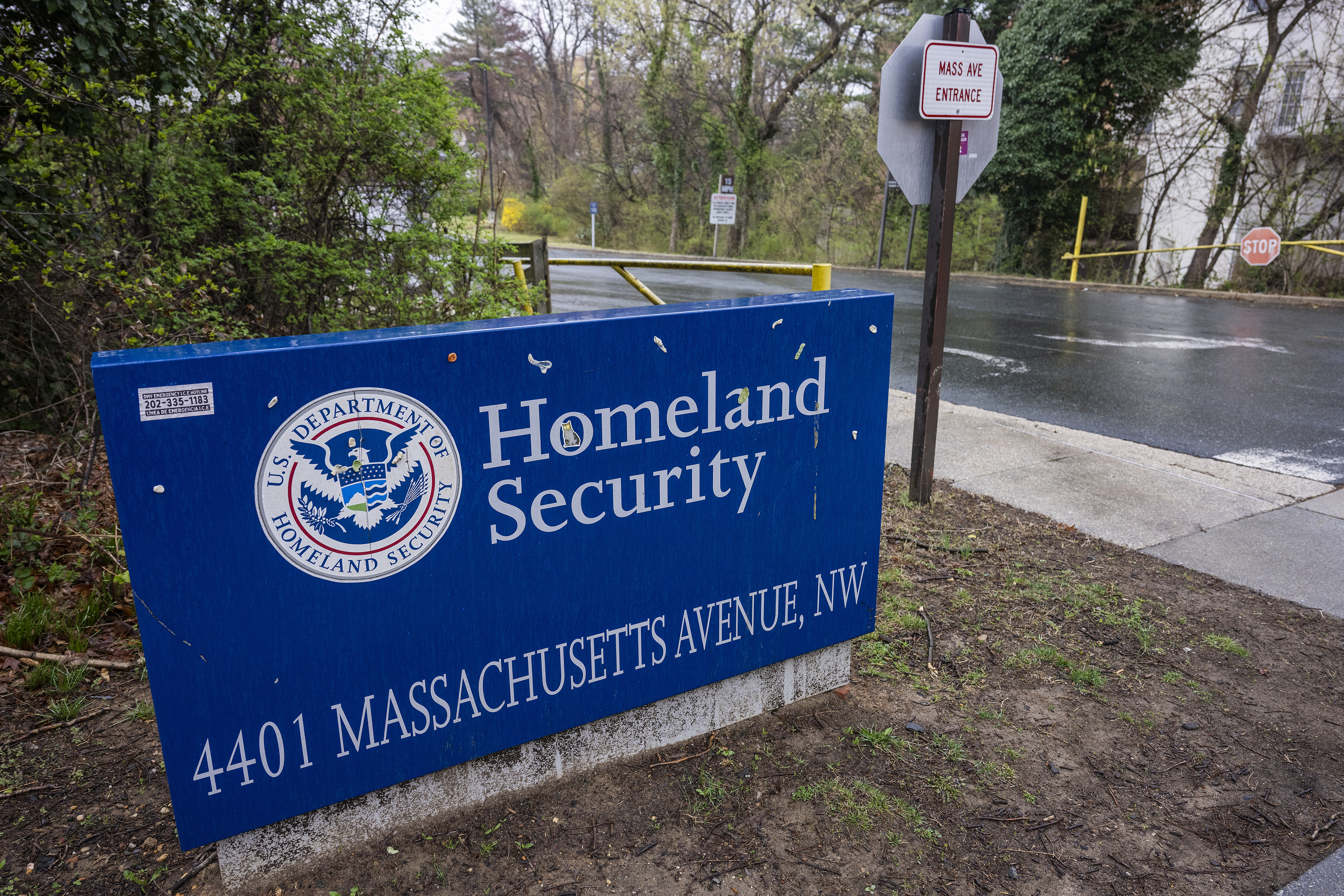
JIM WATSON/AFP via Getty Images
A sign for the US Department of Homeland Security in Washington, DC, March 24, 2025.
In the aftermath of the U.S. strikes on Iran, officials and lawmakers are warning of potential threats from Iranian or Iran-affiliated “sleeper cells” embedded in the United States, a threat that could persist in spite of the ceasefire reached last week.
Experts say that there is a real threat that Iran could seek to target the U.S. government, Jewish communities or other targets within the United States, either through networks of operatives in the country or individuals radicalized online against Israel and Jews.
“Though we have not received any specific credible threats to share with you all currently, the threat of sleeper cells or sympathizers acting on their own, or at the behest of Iran, has never been higher,” Customs and Border Protection Commissioner Rodney Scott said in a memo to CBP personnel earlier this month, asserting that thousands of known and unknown Iranian nationals are believed to have entered the United States.
Iran also reportedly sent a message to President Donald Trump days before the U.S. strikes on Iranian nuclear facilities, threatening to activate a terrorist network inside the United States if the U.S. struck Iran, NBC News reported.
A Department of Homeland Security public bulletin warned that the conflict in Iran could prompt attacks in the United States, and that a specific direction from Iran’s religious leadership could increase the likelihood of homegrown violent extremist mobilization. It also warned of potential cyberattacks.
Both before and after the U.S. strikes, lawmakers on both sides of the aisle had delivered similar warnings. Jewish community security groups came together to caution institutions to take heightened precautions in response to the strikes to protect their physical safety and cybersecurity.
Matthew Levitt, the director of the counterterrorism and intelligence program at The Washington Institute for Near East Policy and a former counterterrorism official, told Jewish Insider that homeland threats are very real, though he argued that the term “sleeper cells,” which he said invokes spy thriller TV shows, can trivialize the threat.
Levitt said there are past cases of Islamic Revolutionary Guard Corps-linked operatives being smuggled into the U.S. and surveying sensitive government and Jewish community locations. One such individual, after his arrest, told authorities he might have been instructed to attack those sites following a development like a direct American attack on Iran.
Levitt said that there have also been documented cases of groups such as Hezbollah setting up networks abroad to raise funds or spread propaganda, among other operations — but these individuals are generally not, as seen in popular culture, “a trigger puller who’s been sent here to wait until he’s ultimately told to pull the trigger.”
“There is real concern that if there was ever a time when Iran or Hezbollah was going to use these types of operatives, now would be it,” Levitt said, “especially since their other toolkits have generally been denied to them.”
Embedded foreign operatives operatives are likely few in number, Levitt added. A larger threat is from individuals in the United States who have been radicalized by anti-Israel and antisemitic propaganda or could be prompted to violence by a potential future Shia religious edict.
The degradation of Iran’s proxies and limited effectiveness of its missile attacks leaves “the potential for international terrorist attacks” that are less easy to definitively trace to the Iranian government, but send a message that “they haven’t been beaten” and can still retaliate, Levitt said.
Oren Segal, the vice president of the Anti-Defamation League’s Center on Extremism, told JI that “this specific conflict speaks to concerns that intelligence agencies have talked about for years, about the idea that Iran or its proxies have people around the world.”
“It’s understandable for not only the Jewish community, but frankly, the broader community, to be feeling anxiety over whether these people are in place and what they might do,” Segal continued.
He said it’s difficult to know how many direct Iranian assets might be in the United States, but regardless of that, there’s an ongoing threat of individuals being radicalized online.
“You don’t have to look too far to see attacks that have happened, or plots in this country that were motivated or animated by ideology, as opposed to somebody coming in from abroad,” Segal said. “To me, that is always going to be the most omnipresent threat.”
He emphasized that violent language targeting the Jewish community has skyrocketed since recent antisemitic terrorist attacks in Washington and Boulder, Colo., and “we just don’t have the luxury to ignore any of these threats.”
Secure Community Network CEO Michael Masters, speaking on a recent webinar with FBI and DHS officials, warned of heightened risks to Jewish community groups that could emanate from a range of different sources, according to prepared remarks reviewed by JI.
Masters emphasized that Iran has a record of attempting operations inside the United States in recent years, and noted that U.S. military engagement against Iran has long been seen as a likely trigger for Iranian retaliatory attacks in the United States.
He said SCN believes that Jewish institutions and leaders would be top targets of Iranian proxies and criminals working with them. And he noted that within hours of the U.S. attacks on Iran, SCN had identified nearly 1,700 violent social media posts targeting the American Jewish community.
Levitt said that the “good news is” that IRGC and Hezbollah operatives in the country are likely under tight surveillance, noting that recent reporting indicates that the FBI has increased its focus on such groups in recent days.
“On the one hand, I’m sure that there are adversaries that would like to do something against America in America,” Levitt said. “It’s also a case that — there’s no such thing as 100% successful — we’re pretty good at law enforcement, intelligence and border security and all that here.”
Many Republicans have linked the “sleeper cell” threat to increased levels of undocumented immigration during the Biden administration, a connection that Levitt largely dismissed.
“I don’t subscribe to the opinion that border security was so lax in previous administrations that all kinds of bad guys got in,” Levitt said. “More people were allowed in the country. It doesn’t mean that law enforcement wasn’t doing its job, and the actual [number of] cases we know about where bad guys were able to come into the country is very, very small.”





